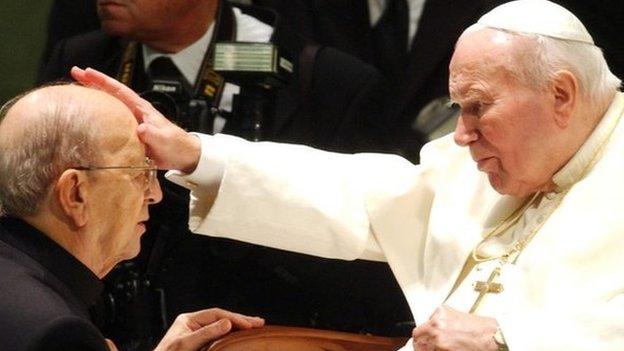Cardinal Pell charges: A body-blow to the Vatican's reputation
- Published
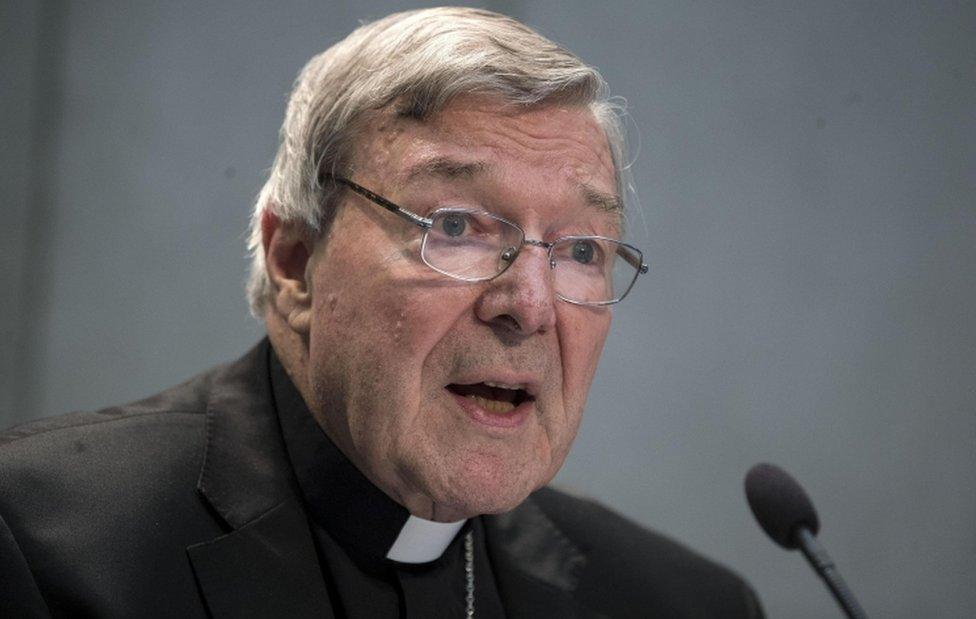
Australian Cardinal George Pell will return to Australia to defend himself in court
Australian Cardinal George Pell, one of Pope Francis' most senior advisers, is facing criminal charges for alleged sex offences dating back several decades.
Cardinal Pell has emphatically denied the charges.
At the Vatican, it's being seen as a punishing body-blow to the reputation and credibility of the worldwide Roman Catholic Church.
Cardinal Pell, 76, is a former Archbishop of Sydney who now resides inside the Vatican. He was summoned to Rome by Pope Francis in 2014 to try to sort out scandal at the Vatican Bank, and to reform a particularly messy situation in Vatican finances.
Three years ago, the cardinal pleaded health reasons for refusing to return home to face questioning at a public hearing by a Royal Commission set up to investigate allegations of child sex abuse inside Australian institutions such as churches, schools and sporting groups.
However, he agreed to answer questions by video link from Rome, vigorously denying any wrongdoing, although arousing some public criticism over a surprising analogy that he offered.
He likened the Catholic Church's responsibility for child abuse to that of a trucking company for the behaviour of its employees.
"If a driver picks up some lady and then molests her," the Cardinal said, "I don't think it is appropriate, because it is contrary to the policy [of the company] for the ownership, the leadership of that company, to be held responsible."
The Australian Trucking Association, representing 170,000 local truckers, said it was "deeply insulted" by his remarks.
The cardinal has been granted a leave of absence by Pope Francis to return to Australia to defend himself in court in Melbourne on 18 July.
A Vatican statement said that Pope Francis "...has appreciated Cardinal Pell's honesty during his three years of work in the Roman Curia, is grateful for his collaboration, and in particular, for his energetic dedication to the reforms in the economic and administrative sector".
It went on: "The Holy See expresses its respect for the Australian justice system that will have to decide the merits of the questions raised.
"At the same time, it is important to recall that Card Pell has openly and repeatedly condemned as immoral and intolerable the acts of abuse committed against minors; has cooperated in the past with Australian authorities (for example, in his depositions before the Royal Commission); has supported the Pontifical Commission for the Protection of Minors; and finally, as a diocesan bishop in Australia, has introduced systems and procedures both for the protection of minors and to provide assistance to victims of abuse."
At a news conference Cardinal Pell told reporters: "There has been relentless character assassination for months ... I am looking forward finally to having my day in court, I am innocent of these charges, they are false. The whole idea of sexual abuse is abhorrent to me."
Cardinal Pell: "I am innocent of these charges, they are false"
The decision by Australian prosecutors to take Cardinal Pell to court comes at a particularly significant moment in Pope Francis' four-year reign - his handing over this week of red hats to five new "princes of the church".
Pope Francis is selecting new church leaders - and perhaps his own successor - from clerics of a very different mould to that of his predecessors. In fact, he emphatically told his new cardinal appointees not to consider themselves "princes" but "servants of God and the people".
Instead of promoting to top positions in the church former administrators of great metropolitan Catholic dioceses around the world, like Cardinal Pell (who has already submitted his resignation having reached the compulsory retirement age of 75), Francis is increasingly choosing new cardinals from among bishops in countries "on the periphery" as he puts it.
Four of the five cardinals he appointed this week come from countries - Laos, Mali, El Salvador, and, surprisingly, predominant Lutheran Sweden - that have never had a representative among the Sacred College of Cardinals, the elite churchmen who alone have the power to elect future popes.
A church dominated for centuries by Italians in particular, and Europeans in general, is reconfiguring itself to reflect the real and diverse world of the 21st century.
- Published29 June 2017
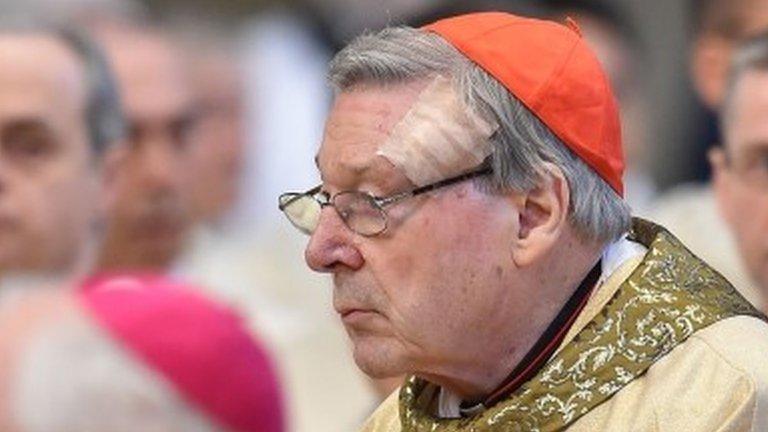
- Published26 February 2019
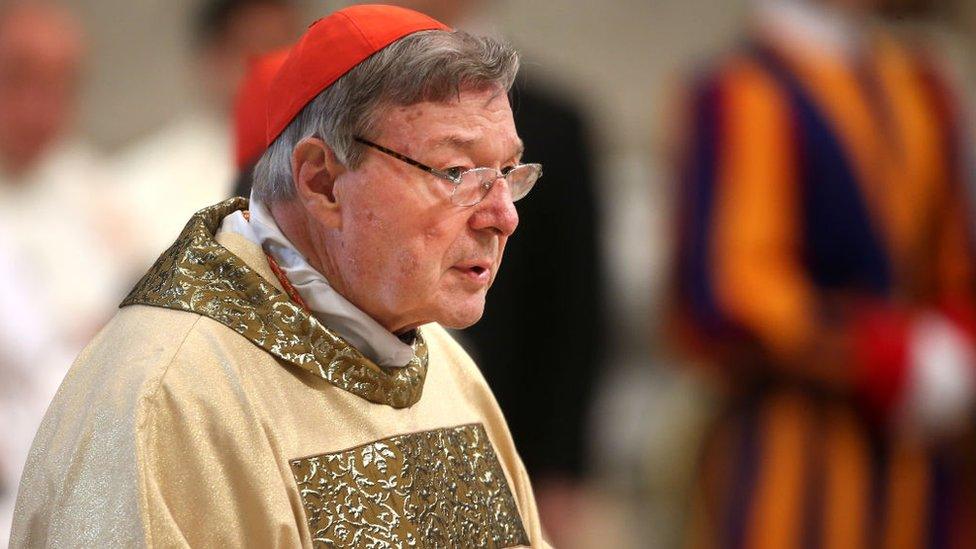
- Published20 December 2016
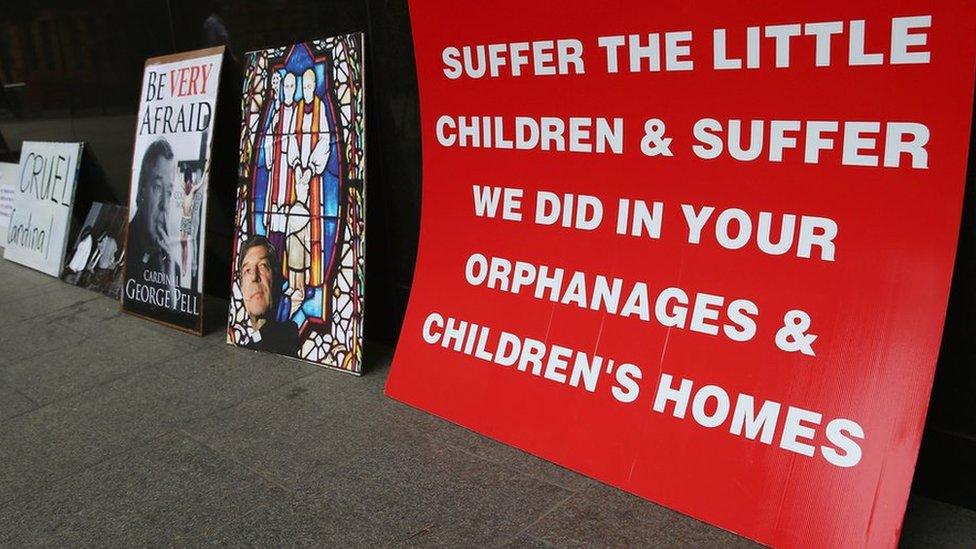
- Published11 April 2014
